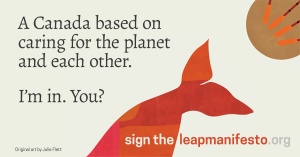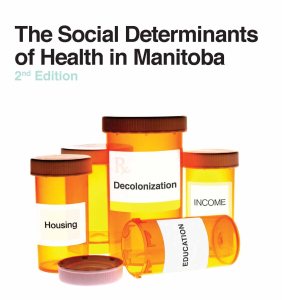By Shaun Loney
By some estimates, health care expenditures will account for about 80 percent of provincial program spending by 2030. This means fewer dollars for other priorities. With a problem this big, it’s important to get the diagnosis right.
Many on the right would have us believe that it’s our public health care system causing expenditures to increase, but that’s nothing more than a corporate fantasy. It’s been well documented that public delivery is far more efficient than the private alternative.
by Susan Prentice
Thirteen federal elections ago, in 1970, the Royal Commission on the Status of Women recommended a national childcare program. Fast-forward to 2015, and Canadian parents are more desperate than ever for affordable, quality childcare.
Up to 85 percent of all households with children have a mother in the paid labour force, making childcare an issue for nearly all young families. Canada, with its nearly 5 million children under the age of 12 years, has just under 1 million licensed regulated childcare spaces; spaces which are very unequally spread across the provinces, with varying quality and regulatory standards, at hugely unequal costs ranging from just $7/day to $75/ day. Where childcare spaces don’t exist or aren’t accessible, families are forced to resort to unregulated options – from family care (often by grandparents) or unlicensed and often expensive ‘informal’ care.
By Pete Hudson
The debate around the private financing of Canada’s health care system has recently been revived as one of a series of video shorts on human rights issues in Winnipeg’s Canadian Museum of Human Rights. It discusses a Supreme Court hearing in which Quebec’s prohibition on private insurance to cover procedures already covered by the public plan was challenged (Chaoulli versus Quebec 2005). Unfortunately, the video skews the debate in favour of private financing. For example, it poses this question for the viewing public: “Does a law that can cause patients to wait a long time for medical care violate their physical and mental safety?” The design of the question could hardly evoke a vote other than the 87 percent yes and 13 percent no (at the time of viewing). Even worse than the skewed wording is the lack of context, especially the failure to note the likelihood that those who cannot afford to use a private system will be harmed.
By Tim Sale
Every developed country except Canada knows that safe, affordable housing is a critical key to social, physical and emotional well-being. The list of poor outcomes associated with poor and unaffordable housing is long, and gets longer with every study. Higher rates of poor health, especially connected to respiratory illnesses and stress-related illnesses, poor school attainment, higher rates of family violence all are directly related to poor housing. Unaffordable housing forces individuals and families to choose between food and shelter, not filling medical prescriptions, not being able to participate in normal community activities such as children’s sports.
By Lynne Fernandez
Are you willing to do physically demanding work for $12.50 -$13.50/hour, for a 1 month contract?
One hundred and four inner-city young men and women are. In fact, these men and women lined up before 8:00 am in front of the North End Community Renewal Corporation to apply. As per the instructions in the job advertisement put out by Manitoba Green Retrofit (MGR), they had their steel-toed boots on and their resumes in hand.
A call for a Canada based on caring for the Earth and one another, The Leap Manifesto was released today.
Read How Can We Afford the Leap? by CCPA National Executive Director Bruce Campbell, CCPA BC Senior Economist Marc Lee and CCPA BC Director Seth Klein.
Featuring CCPA MB Director Molly McCracken and Neil McArthur, Department of Philosophy, University of Manitoba. Hosted by the University of Manitoba Centre for Professional and Applied Ethics.
Tuesday September 22nd. Doors 6 pm; Panel 7 – 8 pm
Fools and Horses Coffee Co. 379 Broadway
Free event, everyone welcome
By Robert Chernomas and Ian Hudson teach economics at the University of Manitoba and are Research Associates of CCPA MB.
The Harper government has a two-fold strategy to undermine Medicare. One part of the game plan is to underfund Medicare creating “shortages” over the medium run without making a politically unwise frontal attack against the not-for-profit publicly funded and organized health care system cherished by Canadian citizens. When it expired in 2014, the Conservative government refused to renegotiate the 2004 Health Accord. According to research by the Council of the Federation, a body comprising Canada’s 13 premiers, the provinces and territories will receive $36-billion less over the next 10 years. In effect, the federal government is balancing its budget on the backs of the provinces. In response, provinces are left with difficult choices: de-list needed services and invite more private health care providers as wait times increase or raise taxes and redistribute tax dollars from education and other public services.
Book launch Wednesday October 21, 7 pm at McNally Robinson Booksellers Grant Park Mall
Community Symposium Thursday October 22, West End Commons, 641 St. Matthews Ave.
RSVP at Event Brite
8:30 am – 4 pm
Edited by Lynne Fernandez, Shauna MacKinnon and Jim Silver
Book Launch
September 24
McNally Robinson Booksellers
Grant Park Shopping Centre
7 pm
Books will be available after September 24 for $25.00 each from the CCPA office 205 – 765 Main St. Call 204-927-3200 for your order today or pick them up at the book launch on September 24th.








Follow us!